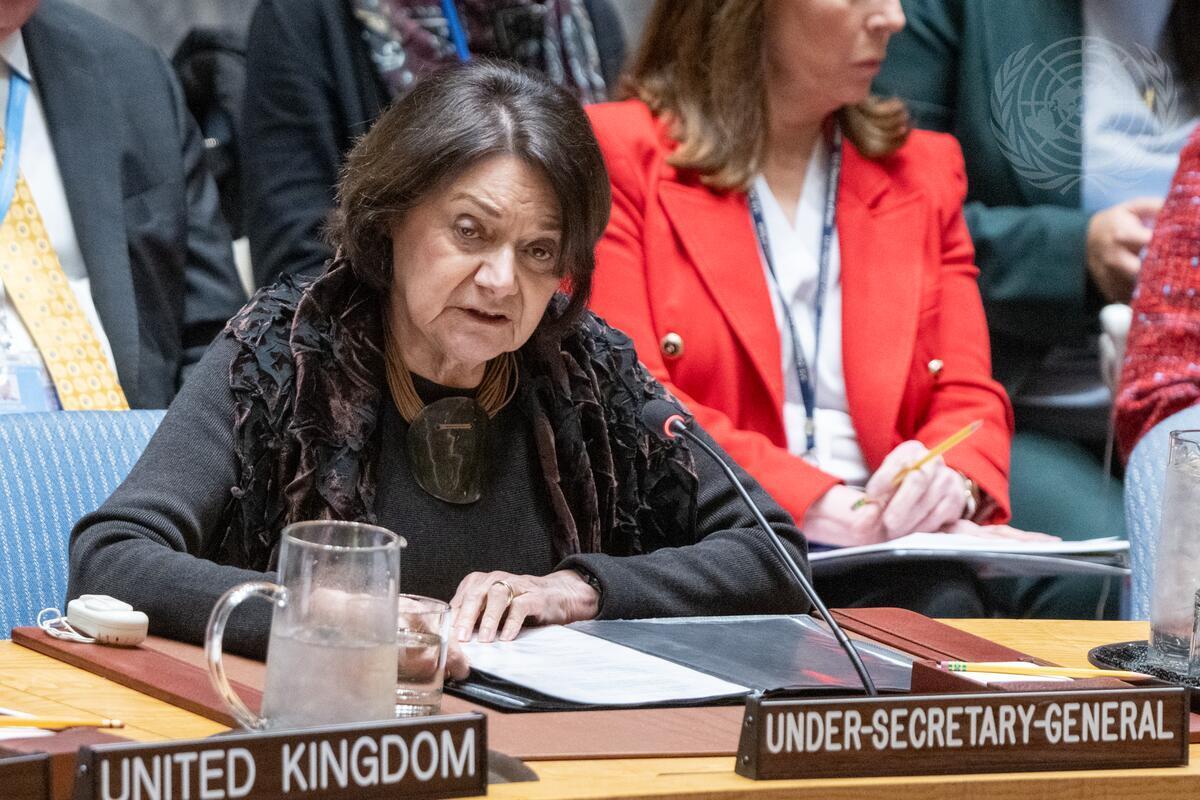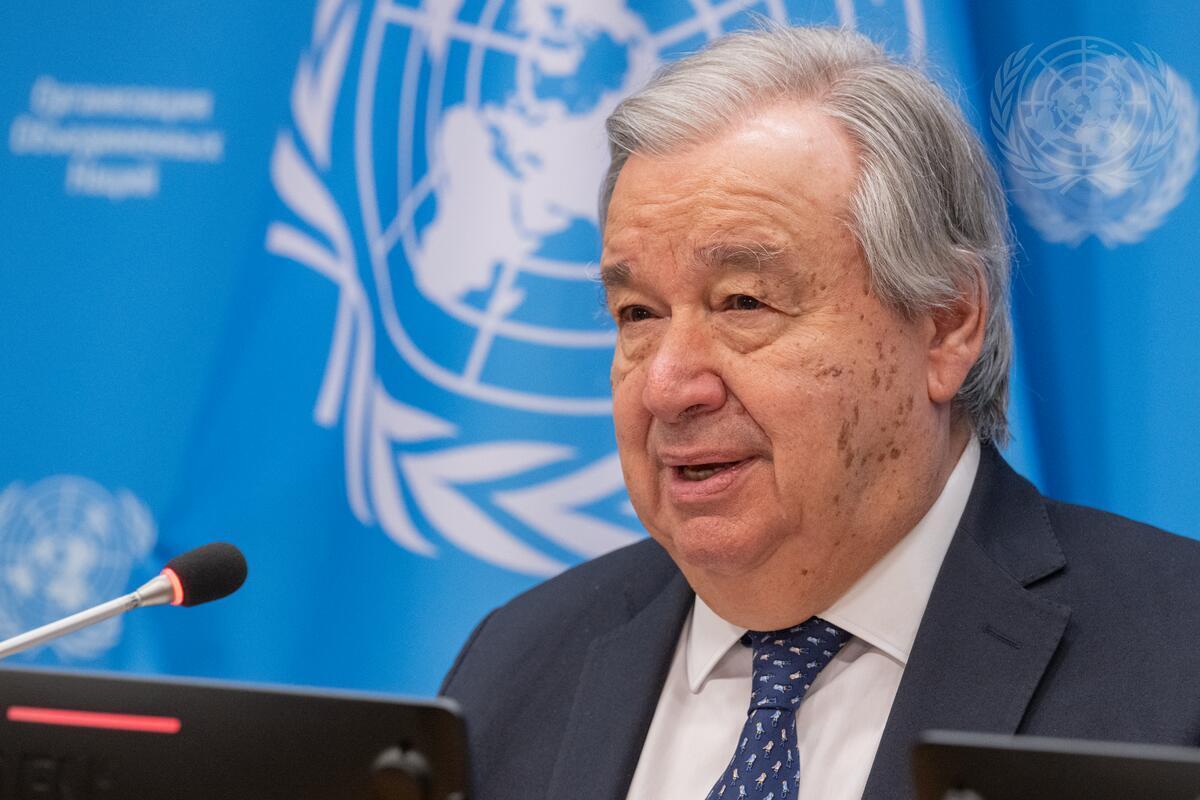As the situation on the ground in Gaza is on the brink of collapse, a United Nations report has called for urgent steps to prevent violent confrontation in Gaza, support for the return of the legitimate Palestinian Government and humanitarian assistance. This includes easing of Israeli movement and access restrictions, de-escalating tensions and urgent humanitarian and economic interventions to address Gaza’s failing basic services and devastated economy.
Several urgent humanitarian and economic measures need to be prioritized to improve the electricity situation, support water and sewage treatment and bolster the health networks alongside a concerted effort to inject badly needed cash into the economy through employment generation and other schemes. “If we are unable to move forward on this basic package of interventions, the ability of the UN and the international community to engage in supporting Egyptian efforts to return the Palestinian Government to Gaza as well as de-escalate tensions and push for a removal of the Israeli closures, will be severely limited,” the report said.
The report, issued by the office of the United Nations Special Coordinator for the Middle East Peace Process for the upcoming bi-meeting of the Ad Hoc Liaison Committee (AHLC) in New York on 27 September, notes a further deterioration over the past six months of the overall humanitarian and economic situation in the occupied Palestinian territory (oPt), particularly in Gaza, with an unemployment rate of over 53%, a breakdown in service delivery, and violence and tensions increasing. The situation is compounded by UNRWA’s unprecedented funding crisis and a reduction in funding to Palestinian humanitarian and development programs, it added.
The report stresses that Hamas’ continued control of Gaza and its militant activity as well as Israel’s continuing closure regime contribute to an overwhelming feeling of isolation and hopelessness. This is further exacerbated by internal Palestinian divisions and lack of progress on reconciliation.
“Any humanitarian solution to Gaza’s problems can only be temporary. What is needed is lifting the movement and access restrictions in line with UNSC 1860 and a political breakthrough in restoring intra-Palestinian unity under a single, legitimate national authority. The UN will continue to work with all sides to avoid escalation, support intra-Palestinian reconciliation and address all humanitarian issues in coordination with our partners.” said Nickolay Mladenov, UN Special Coordinator for the Middle East Peace Process.
To this end, the UN has enhanced its presence on the ground in Gaza to facilitate smooth implementation of projects, in coordination with the Palestinian Authority and international stakeholders. Furthermore, the report also highlights the ongoing work between the UN, Israeli and Palestinian authorities to review and improve the transparency and accountability of the Gaza Reconstruction Mechanism (GRM).
With regard to the West Bank, including East Jerusalem, the report noted that the situation remained very tense. While the Palestinian Government continues to implement its National Policy Agenda, it is doing so in an environment characterized by continuing military occupation, territorial fragmentation, lack of jurisdiction, limited access to natural resources, and dwindling financial support. Its potential is stunted by the continued inability to access Area C and East Jerusalem, while Israeli settlement expansion and demolitions has continued unabated. Moreover, violent incidents between Palestinians and Israeli security forces and civilians continued on an almost daily basis.
The report reiterated the importance of finalizing agreements between Israel and the PA like the Red Sea-Dead Sea Memorandum and the Power Purchasing Agreement. However, it also notes that the amount of progress that can be achieved is dependent on commensurate political measures including an end to settlement construction and efforts to increase Palestinian control over more of the West Bank and to expand its economy in a meaningful way. The report calls for concrete steps to reduce the territorial fragmentation and increase access to Area C at a minimum.
In conclusion, the report notes that the recommendations to advance the two-state solution as outlined in the 2016 Quartet report, remain valid. “While the recommendations have largely gone unheeded, it remains clear that only a negotiated two-state outcome can achieve an enduring peace that meets Israeli security needs and Palestinian aspirations for statehood and sovereignty.”
Note to Editors: The Ad Hoc Liaison Committee (AHLC) serves as the principal policy-level coordination mechanism for development assistance to the oPt. The AHLC is chaired by Norway and co-sponsored by the EU and the US. In addition, the United Nations participates together with the World Bank and the International Monetary Fund (IMF). The AHLC seeks to promote dialogue between donors, the Palestinian Authority and the Government of Israel. The full report to the AHLC prepared by the Office of the UN Special Coordinator for the Middle East Peace Process is attached to this release and includes an executive summary of its main conclusions.





